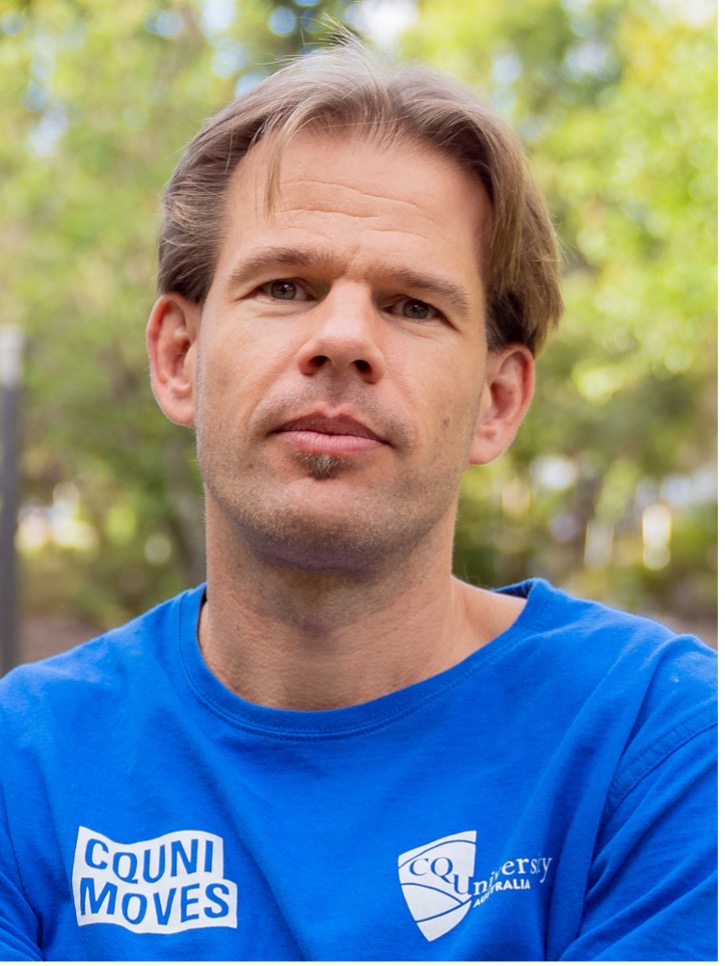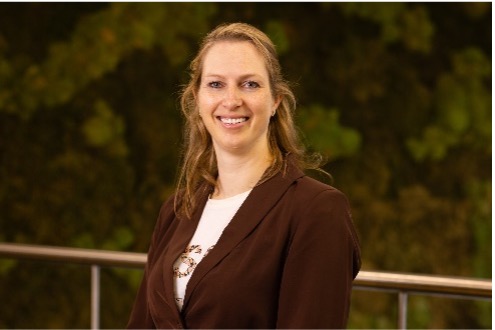The purpose of the SIG is to build a community of interested ISBNPA members to advance e- & mHealth related research specifically related to physical activity, dietary and sedentary behaviours.
Scope
The eletronic- & mobile (e-&m) Health Special Interest Group (SIG) will provide a platform to address e- & mHealth related research within the framework provided by the International Society for Behavioural Nutrition and Physical Activity (ISBNPA). ISBNPA addresses behavioural research in nutrition, physical activity and sedentary behaviour.
Within the ISBNPA and SIG context, e- & mHealth are defined as the use of electronic & mobile technologies (e.g. the Internet, mobile devices and apps) to expand, assist or enhance health and health care delivery.
Background
With increasing prevalence of unhealthy dietary practices, physical inactivity and sedentary behaviour, effective and low cost approaches that can improve these health behaviours in large populations are needed to improve health and well-being and reduce health care costs. Interactive electronic & mobile technologies have potential to expand, assist and/or enhance delivery of health promotion initiatives and thus improve health behaviour outcomes. Though a sizeable body of literature is developing in this area, the science of using e- and mHealth technologies is still relatively young and large gaps remain. For example, more work needs to be done to improve the (long-term) effectiveness and reach of behavioural e- and mHealth interventions, and many questions remain around optimal implementation and dissemination.
Aim
The purpose of the SIG is to build a community of interested ISBNPA members to advance e- & mHealth related research specifically related to physical activity, dietary and sedentary behaviours. The SIG will provide a forum to discuss new evidence, underlying mechanisms and specific components of e- &mHealth-based interventions that may lead to enhanced behavioural outcomes.
Newsletters
The e- & mHealth newsletters are sent regularly to SIG mailing list. You can join this mailing list by updating your membership profile and adding the SIG to your preferences; by sending an email to executivedirector@isbnpa.org or by accessing one of the newsletters and hitting subscribe on the footer of the newsletter.
SIG Chair
Claire Gough

Chair: Dr. Claire Gough, PhD.
Flinders University, Australia
Postdoctoral Research Fellow
Bio: Claire is an experienced physiotherapist with a background in musculoskeletal and neurological rehabilitation. She has a passion for working with older people and combining progressive technologies to promote independence and community participation. Claire is driven to improve the care and quality of life of older people and has a Postdoctoral research fellowship with Aged Care Research & Industry Innovation Australia’s Knowledge and Implementation Hub.

Past-Chair: Dr. Amanda Staiano, PhD, MPP, MS.
Associate Professor, Population and Public Health Services
Director, Pediatric Obesity & Health Behavior Laboratory at Pennington Biomedical Research Center, USA
Bio: Amanda Staiano, PhD, MPP, MS, is associate professor and director of the Pediatric Obesity & Health Behavior Laboratory at LSU’s Pennington Biomedical Research Center. She earned her doctorate in developmental psychology and Master of Public Policy at Georgetown University, followed by a Master of Science in Clinical Research at Tulane University. Her primary interest is developing and testing family-based healthy lifestyle interventions that utilize innovative technology to decrease pediatric obesity and its comorbidities. Her research has involved more than 2,500 children and adolescents, including randomized controlled trials and prospective cohorts, to examine body weight reduction and the influence of physical activity and sedentary behavior on body composition and cardiometabolic risk factors. She also served on the clinical practice guidelines committee on child obesity treatment for the American Academy of Pediatrics.

Immediate Past Chair: Dr. Mavra Ahmed, PhD.
University of Toronto, Canada
Research Associate at the Department of Nutritional Sciences and Joannah and Brian Lawson Centre for Child Nutrition
Bio: Dr. Mavra Ahmed is a research associate at the Department of Nutritional Sciences and Joannah and Brian Lawson Centre for Child Nutrition, University of Toronto and an Adjunct Professor at York University and Ontario Tech University. With expertise in food and nutrition policy, Dr. Ahmed’s research focuses on driving equity-focused policy shifts by determining the relationships between determinants of health, dietary patterns/intakes, food environments and nutrition-related behaviors and knowledge to improve the health of children and adolescents. She is fronting the Feeding Kids, Nourishing Minds school nutrition research initiative that aims to provide a comprehensive overview of school food programs in Canada and identify best practices in relation to the design, delivery, and measurement of school food programs. She obtained her PhD from the University of Toronto, specializing in characterization of diets of Canadian Armed Forces and evaluation of novel technologies for dietary assessments. She holds a CIHR Fellowship in the Strategic Training Program in Public Health Policy and in Artificial Intelligence for Public Health from the Dalla Lana School of Public Health.

Fellow: Dr. Carol Maher, PhD.
University of South Australia, Australia
Research Professor and Director of the Alliance for Research in Exercise, Nutrition and Activity (ARENA)
Bio: Dr. Maher is a Research Professor and Director of ARENA at the University of South Australia, focusing on improving health through physical activity, sleep, and sedentary behavior. She integrates technology like wearables, social networking, apps, and AI to promote healthier lifestyles. Carol’s research is well-funded, with support from ARC, NHMRC, MRFF, and the National Heart Foundation, totaling over $24M. She has led multiple NHMRC and MRFF projects and published over 220 journal articles. Recognized a Clarivate Highly Cited Researcher (2020-2022), Carol also serves as Senior Editor for BMC Public Health and Chief Specialty Editor for Frontiers in Digital Health. Carol is on the Executive Committee of the International Society of Behavioral Nutrition and Physical Activity and co-convenes the SA researcher-practitioner network, Healthy Development Adelaide.

Fellow: Dr. Corneel Vandelanotte, PhD.
Central Queensland University, Australia
Research Professor
Bio: Dr. Vandelanotte completed his PhD in Physical Education at the Ghent University in Belgium 2004. In 2005, he started working at the University of Queensland and moved there in 2009. Dr. Vandelanotte’s research takes a population-based approach to health behavior change and is focused on the development, evaluation and implementation of innovative and web, app, tracker, computer-tailored and machine learning based physical activity interventions. Dr. Vandelanotte leads the Physical Activity research Group and the 10,000 steps program at the Central Queensland University. The 10,000 Steps Australia is a world-renowned program that has attracted over 666,000 members, 22,000 organizations, and over 404 billion steps logged onto the website and app. He is an author on 297 peer-reviewed journal publications and his work has been cited over 11,000 times according to Scopus (h-index=51) and over 20,000 times according to Google Scholar (h-index= 69). In 2022 and 2023 he was named a “Highly Cited Researcher” (top 0.1% of his field) by Clarivate (i.e., Web of Science). Dr. Vandelanotte has been awarded over $16 million of competitive research funds from NHMRC, ARC, NHF, AND MRFF. He is the Founding Executive Committee member and Chair of the Abstract Committee for the Asia-Pacific Society for Physical Activity, the Founding Editor-in-Chief for the Journal of

Dr. Zenong Yin, PhD.
Loretta J. Lowak Clarke Distinguished Professor in Health and Kinesiology
Professor, Public Health
The University of Texas at San Antonio, USA
College for Health, Community and Policy
Department of Public Health
Bio: Dr. Yin earned his BEd-Physical Education at Beijing Sports University and received his MA in Physical Education with a specialization in the administration of physical education and sports and PhD in Physical Education with a specialization in sports psychology from the University of Southern California. Dr. Yin teaches both undergraduate and graduate classes in health and kinesiology and conducts school-and community-based physical activity and nutrition interventions for the prevention of obesity and type 2 diabetes in low-income and minority children and adults. Dr. Yin’s recent work has focused on the application of digital technologies to promote physical activity in adults and manage chronic diseases in older adults living in underserved communities. He has published more than 130 peer reviewed articles since 1991. Prior to joining UTSA, Dr. Yin was a Professor of Pediatrics in the Department of Pediatrics-Georgia Prevention Institute, the Medical College of Georgia from 2001 to 2005.

Dr. Maria Vasiloglou, MSc, PhD
Nestle Institute of Health Sciences, Switzerland
Department of Nutritional Sciences
Specialist in Nutritional & Digital Health
Bio: Dr. Maria Vasiloglou works as a Specialist of Nutrition & Digital Health in the Department of Nutrition Sciences at Nestlé Research Center, Switzerland. In this position, Maria collaborates closely with the Digital Health group on developing and validating digital dietary assessment tools at clinical and consumer settings. Maria holds a BSc in Nutrition and Dietetics from ATEI Thessalonikis, Greece and a M(med)Sc in Human Nutrition with specialization in Clinical Nutrition from the University of Glasgow. Maria obtained her PhD from the Faculty of Medicine of the University of Bern, with a focus on user requirement collection and analysis of AI-based approaches for dietary monitoring and assessment and their validation. Prior to her PhD, she conducted research on endocrinology and nutrition, worked as a clinical dietitian for children with T1D, eating disorders and obesity, and developed science-based nutrition policy options at the European Commission. She is (co-)author of several publications (h-index:18). Finally, Maria is a board member of the e-& m-health SIG of ISBNPA, lead of EFAD ESDN Diabetes and has sat as advisory board of Digital Communication Program of EFAD as well as PROTEIN Horizon 2020.

Dr. Bridve Sivakumar, PhD
Ontario Tech University, Canada
Bridve is a 3rd year PhD Candidate in Health Sciences at Ontario Tech University. Her research and area of work focuses on eHealth/mHealth, behavioural science, and cardiovascular disease management and prevention. As part of her PhD, she has worked on the development and evaluation of mHealth interventions to support dietary adherence in patients with chronic heart failure – a clinically challenging area of heart failure management. Through her research thus far, she has identified patient and clinician readiness to use mHealth apps, relevant mHealth intervention characteristics, and barriers and facilitators to adopt mHealth apps. She has also led an interdisciplinary team of Registered Dietitians, patients, and an industry partner in co-producing Sodium NavigatorHF, the first mHealth app to support nutrition education among the heart failure population. She has also collaborated on numerous research projects focused on cardiovascular disease prevention, including working on a multi-country research in Latin America to evaluate dietary salt reduction policies and contributing to a regularly updated systematic review on emerging studies related to sodium and health outcomes as part of the World Hypertension League Science of Salt Advisory group.

Dr. Jasmine Petersen
Flinders University, Australia
College of Nursing and Health Sciences
Research Fellow
Bio: Dr. Petersen is a research fellow at the College of Nursing and Health Sciences at Flinders University. She is involved in research and has contributed to various studies, particularly in the fields of physical activity, health psychology, and public health. Some of her research interests include the psychological mechanisms underlying physical activity engagement and the use of mobile apps to promote physical activity. She has also been recognized for her work on mental health promotion in youth sporting clubs and has a notable presence in academic publications, with a solid h-index and i10-index reflecting her contributions to her field.

Dr. Ben Singh, PhD.
University of South Australia, Australia
Allied Health and Human Performance
Research Fellow
Bio: Dr. Sing is a Research Fellow at the University of South Australia, working within the UniSA Allied Health & Human Performance. His research focuses on several areas including Human Movement and Sports Science, Medical and Health Sciences, Education, Oncology and Carcinogenesis, and Public Health and Health Services. Dr. Singh has a notable academic background, having obtained a Bachelor of Clinical Exercise Physiology, a Master’s Degree in Research, and a PhD from the Queensland University of Technology (QUT) in Brisbane. His Master’s and PhD research explored the role of exercise in improving health outcomes among women with breast cancer. He has been involved in various projects and has several publications in his name, including works on the evaluation of workplace health and wellbeing programs, insights in digital health communication, and the impact of cardiorespiratory fitness on morbidity and mortality.

Dr. Janis Fiedler, PhD.
Karlsruhe Institute of Technology, Germany
Postdoctoral Researcher
Bio: Dr. Janis Fiedler is a postdoctoral researcher at the Karlsruhe Institute of Technology in Germany. He completed his PhD on the topic of mHealth interventions to enhance physical activity at the end of 2022. Since then, he has broadened his research focus to include performance diagnostics, fitness, and body composition as the foundation for individualized physical activity interventions. Dr. Fiedler enjoys creating plots in R and is working towards fostering a culture of open science.

Dr. Hannes Baumann, PhD.
German Sport University Cologne, Germany
Institute for Movement Therapy and Movement-oriented Prevention and Rehabilitation
Postdoctoral Researcher
Bio: Dr. Baumann holds a PhD in Sport Science from the University of Hamburg, where his dissertation explored the effectiveness of mHealth interventions in promoting physical activity among children and adolescents. He is a postdoctoral researcher specializing in digital health interventions at German Sport University Cologne. Dr. Baumann has an extensive academic background, including positions at Christian-Albrechts-University Kiel, Medical School Hamburg and the Technical University Berlin. His research focuses on developing innovative, evidence-based digital interventions to enhance physical and psychological well-being in educational and healthcare settings.

Irina Timm
Karlsruhe Institute of Technology (KIT)
Institute of Sports and Sports Science, Germany
PhD Student
Bio: Irina Timm is a PhD student at the Mental mHealth Lab at the Karlsruhe Institute of Technology. Her research focuses on exploring the complex relationship between physical activity, sedentary behavior and affective well-being. Her research investigates how environmental factors, such as weather conditions and social contact, influence and moderate these relationships. She employs advanced methodologies, including Ecological Momentary Assessment, to examine these phenomena. Additionally, she is involved in research on micro-interventions to reduce sedentary behavior and in the validation of wearable devices.

Dr. Joan Dallinga
The Hague University of Applied Sciences
Senior Researcher, Netherlands
Bio: Dr. Dallinga is a Senior Researcher at The Hague University of Applied Sciences. She is involved with the Team Assistive Technology for Mobility and Sports and the Team Healthy Lifestyle in a Supporting Environment. Her research focuses on improving lifestyle in various target groups using technology. Dr. Dallinga’s work is pivotal in areas such as Assistive Technology for Mobility and Sports and fostering a Healthy Lifestyle in a Supportive Environment.

Xin Chen
University of Kansas Medical Center, USA
PhD Candidate in Medical Nutrition Science
Bio: Xin is a PhD candidate in Medical Nutrition Science at Kansas University Medical Center (KUMC). She earned a degree in medicine with a minor in Clinical Pathology from Southern Medical University and an MS in Food Science and Human Nutrition from The University of Illinois at Urbana-Champaign. Xin’s current research focuses on nutritional interventions for head and neck cancer survivors and their care partners. She is also interested in researching the effectiveness and potential of Information and Communication Technology in assisting dietary therapy. She aims to continue exploring the role of medical nutrition in cancer prevention and treatment, expanding and combining her study with solid medical practice in order to effectively help as many people as possible.

Shariwa Oke
Cornell University, USA
Division of Nutritional Sciences
PhD Candidate
Bio: Shariwa Oke is a doctoral candidate in the Division of Nutritional Sciences at Cornell University. Her current work focuses on the design, development, and implementation of a digital behavioral intervention focused on nutrition, physical activity, and mindful parenting for parents of preschoolers in low-income and rural areas of the U.S. Her broader research interests lie in developing, implementing, and sustaining interventions for improving health behaviors through the appropriate and personal use of communication, technology, and behavioral theory.

Dr. Katherine (Katie) Spring, PhD
Pennington Biomedical Research Center, USA
Pediatric Obesity & Health Behavior Laboratory
Postdoctoral Researcher
Bio: Katie joined the Pediatric & Obesity Health Behavior lab as a postdoctoral research fellow Summer 2023. After attending Holmes Community College to play tennis and obtain her Associate of Arts degree, she then went on to receive her bachelor’s and master’s degrees in Kinesiology from Mississippi State University. In the Fall of 2019, she began her doctorate work at Auburn University. Her research primarily focuses on the effects of physical activity and play on young children’s physical, behavioral, and learning outcomes. She is especially interested in school-based approaches that incorporate movement into learning objectives.

**Camille Short (Past Chair)** is a behavioural scientist and Senior Research Fellow jointly appointed between the Melbourne School of Psychological Sciences and Melbourne School of Health Sciences at the University of Melbourne. Her research aims to develop, evaluate and disseminate innovative allied health interventions and behaviour change technologies that can help bridge the gap between what is available in clinic and what is available at home. Supported by the Victoria Cancer Agency and the National Breast Cancer Foundation she is currently leading a program of work focused on the co-design of digitally-supported exercise interventions to support cancer patients recover from treatment.

